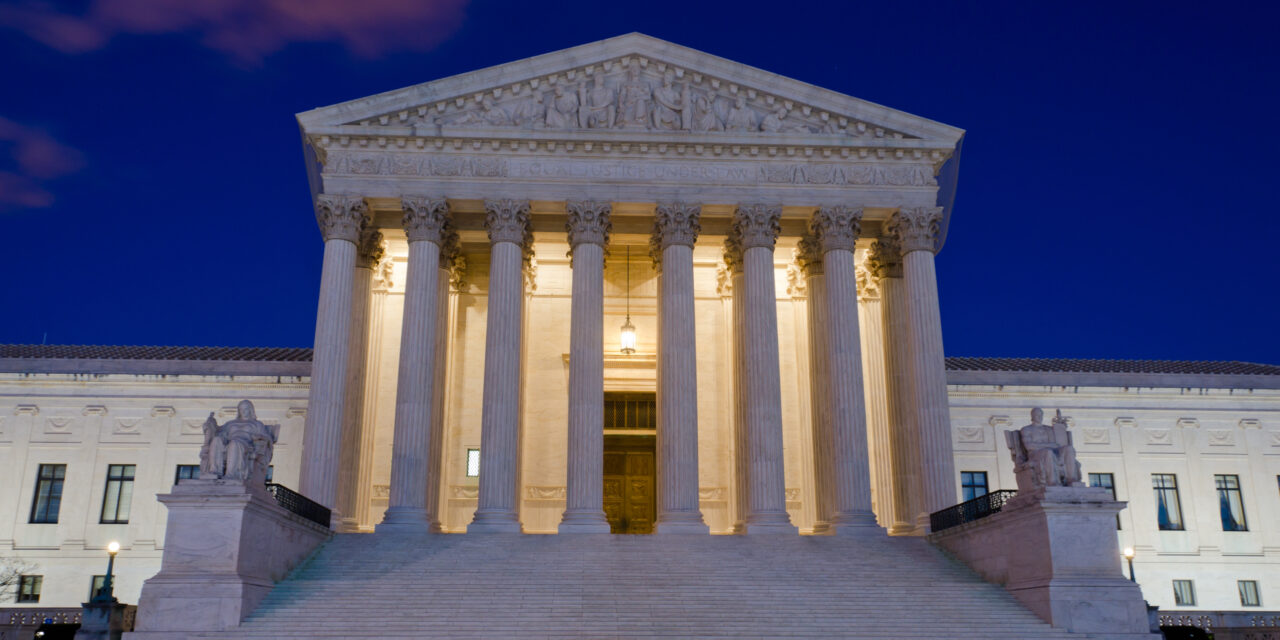On Tuesday, the United States Supreme Court heard oral arguments in the much-anticipated case, Alliance for Hippocratic Medicine v. U.S. Food and Drug Administration, involving the abortion pill, mifepristone.
As previously reported by the Daily Citizen, this case involves the removal of safety regulations on chemical abortion drugs by the U.S. Food and Drug Administration (FDA).
Alliance Defending Freedom (ADF), the public interest law firm representing the Alliance for Hippocratic Medicine, alleges that the FDA unlawfully removed crucial safety standards for pregnant women who use the abortion drug mifepristone — the first of two pills used in a chemical abortion.
The case has been making its way through the legal system since the initial complaint was filed by ADF in November 2022.
In May, Focus on the Family joined 27 other pro-life groups and individuals in filing a brief with the U.S. Court of Appeals for the Fifth Circuit, urging it to block the FDA’s approval of the abortion pill.
Most recently, the U.S. Fifth Circuit Court of Appeals issued a ruling in August that would have required the FDA to restore critical safeguards on the abortion pill. The Biden Administration immediately appealed the decision, and the Supreme Court agreed to take the case in December.
The merits-based question before the Supreme Court this week was whether the FDA illegally lowered safety standards for the abortion pill, mifepristone.
However, justices spent most of the hour-and-a-half-long hearing questioning whether the doctors met the standing requirements to sue rather than debating the merits of the case, which may indicate that their decision will be limited to standing alone.
Standing is the legal requirement a suing party must show to litigate the underlying issue. Without standing, courts will not consider the merits of a lawsuit.
In this case, for the doctors to demonstrate standing, they must show that they were harmed, that the harm resulted from the FDA’s actions, and that their injury can be remedied with a favorable court decision.
In their brief, ADF asserts that standing is met because these doctors face “multiple concrete injuries,” including “conscience harms” and increased malpractice risks. ADF claims that these doctors “object to taking the life of an unborn child” and “to complicity in the process of an elective abortion” and that these harms can be traced to FDA actions to change policy regulating mifepristone.
The justices, however, didn’t seem convinced that the doctors were actually harmed and, if they were, why a limited remedy isn’t good enough to address the harm.
Chief Justice John Roberts asked ADF Counsel Erin Hawley why a more targeted remedy, like conscious protections, wouldn’t be enough to address the alleged harm to the doctors.
Justice Neil Gorsuch expressed concern that the case seems “a prime example of turning what could be a small lawsuit into a nationwide, legislative assembly on an FDA rule or any other government action.”
Justices Alito and Thomas were more critical of the government’s argument that the doctors lacked standing.
Justice Thomas asked U.S. Solicitor General Elizabeth Prelogar if she could give an example of who would have standing to challenge the FDA’s actions. Prelogar did not respond to his question directly.
Justice Alito pressed the matter further, asking Prelogar if anyone could challenge the FDA’s actions. Prelogar said that concerning the regulatory changes, she couldn’t identify anyone who would have the standing to sue.
Justice Alito did not appear to agree with her argument, commenting that if that was true, then the American people would have no remedy.
There was some discussion regarding the increased health risks associated with taking mifepristone. Hawley told the court, “The FDA concedes between 2.9 and 4.6 percent of women will end up in the emergency room, and the FDA acknowledges that women are even more likely to need surgical intervention and other medical care without an in-person visit.” According to Hawley’s brief, that’s one in every 25 women who need emergency room care.
Supreme Court justices could meet as soon as this Friday to vote on the case’s outcome and determine who will write the majority opinion.
The decision, however, is not expected to be released to the public until June.
Please pray for the Supreme Court justices as they consider this case and for all expectant mothers who are considering aborting their children.
The Daily Citizen will continue to keep you updated on developments in this case.
The case is Alliance for Hippocratic Medicine v. U.S. Food and Drug Administration.
Click here to listen to the U.S. Supreme Court’s oral arguments.
To speak with a family help specialist or request resources, please call us at 1-800-A-FAMILY (232-6459).
If you are experiencing an unexpected pregnancy and want to learn more about your options, visit My Choice Network.
Some women, after taking the first abortion pill (mifepristone), come to regret their decision. Thankfully, there is a way to reverse the pill’s effects if prompt action is taken.
To learn more about the abortion pill reversal protocol, visit abortionpillreversal.com or call 1-877-558-0333 to be connected with a medical professional who can guide callers through the process of reversing the pill’s effects.
Related articles and resources:
Dealing With Unplanned Pregnancy
Here’s the Secret Pro-Abortion Activists Won’t Tell You About the Abortion Pill: It’s Dangerous
Focus on the Family Urges Court to Block Abortion Pill in New Legal Brief
U.S. Supreme Court Agrees to Hear Important Abortion Pill Case
Image from Shutterstock.






